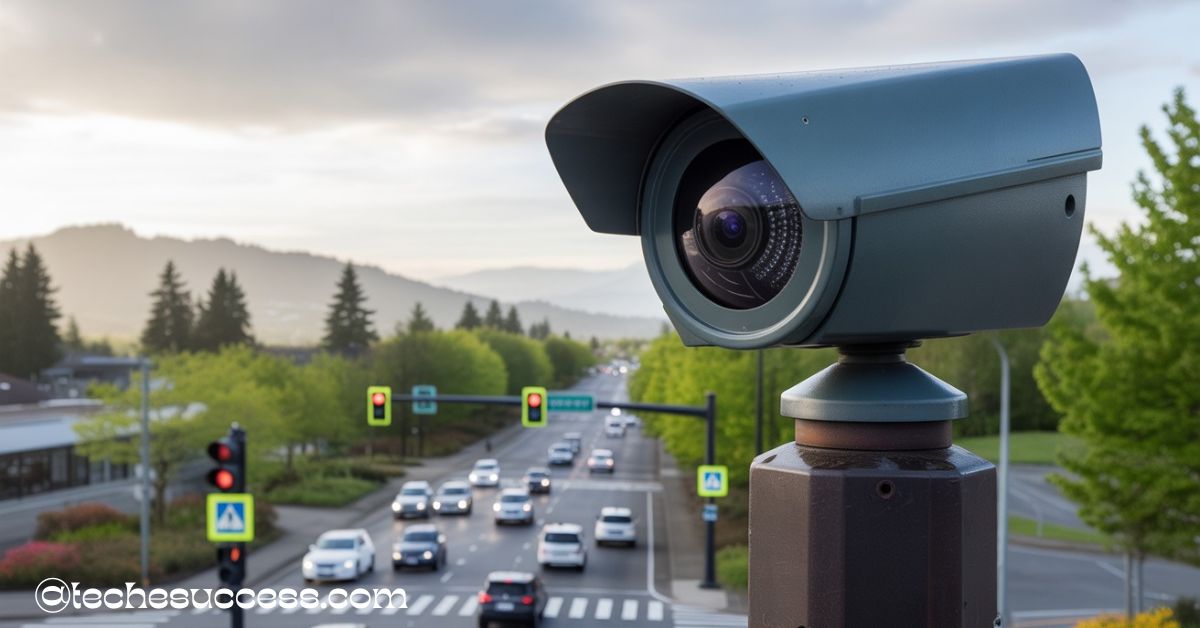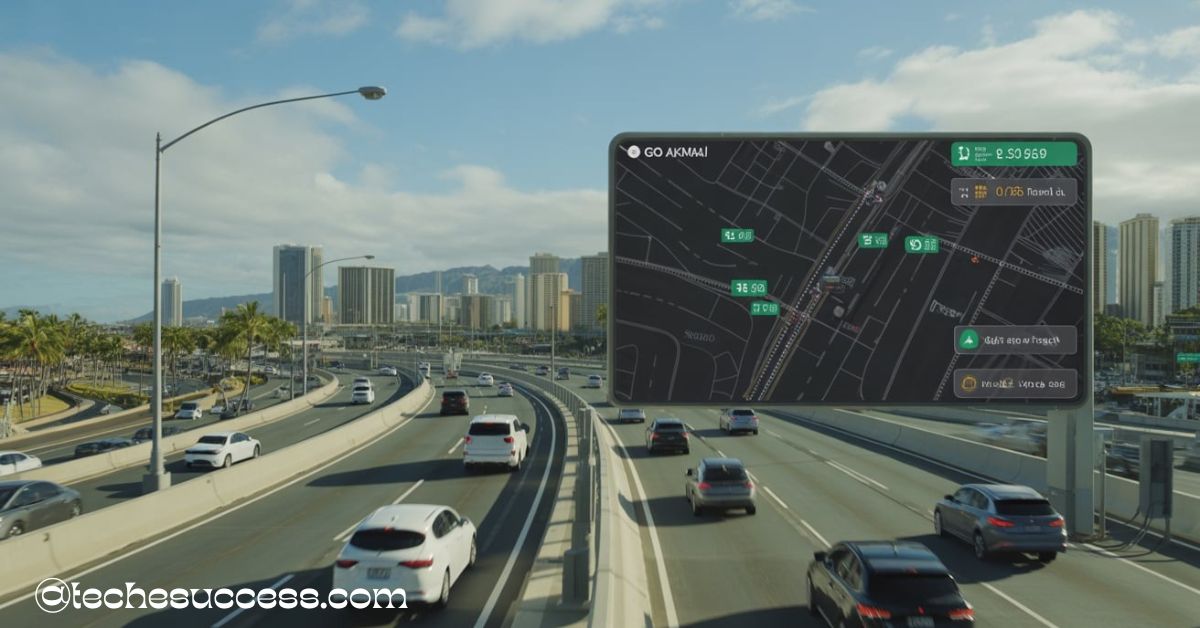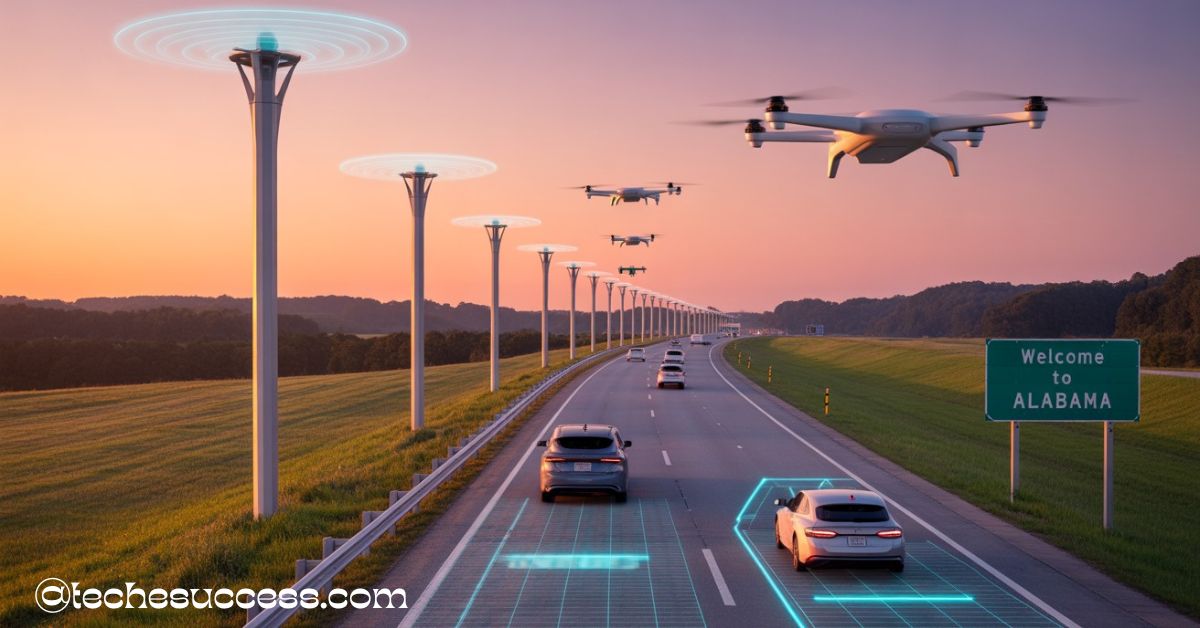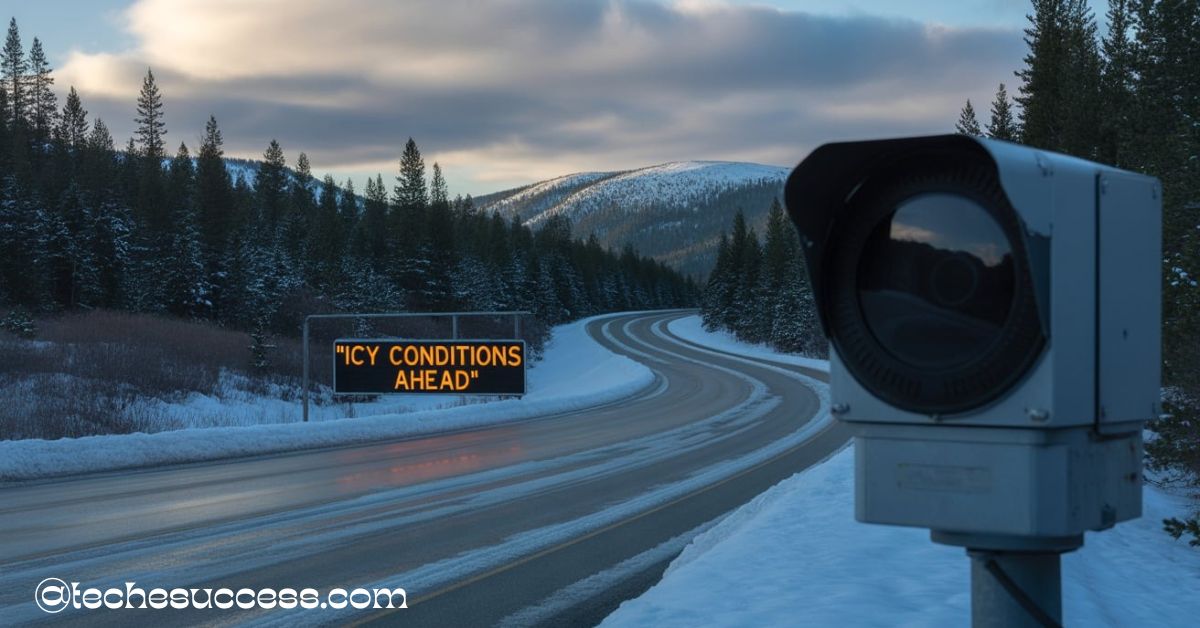Issaquah traffic cameras provide real-time views of local roads, helping drivers stay updated on traffic conditions, weather, and congestion. These live feeds are essential for planning safe and efficient routes. Stay informed with up-to-date visuals from key intersections across Issaquah.
“Stay tuned with us as we dive deep into everything you need to know about Issaquah traffic cameras — from live updates and key camera locations to real-time driving benefits and future developments across the city.”
Introduction to Issaquah Traffic Cameras
Issaquah, a growing city in Washington State, experiences a steady flow of local and commuter traffic due to its location near I-90 and proximity to the Seattle metropolitan area. To help manage this flow, the city and state transportation agencies have deployed Issaquah traffic cameras across key intersections and highways. These Issaquah traffic cameras live offer a real-time look at current road conditions, helping drivers, residents, and officials make informed decisions.
Whether you’re commuting to work, traveling for errands, or navigating around an accident, traffic cameras can be a crucial tool. They provide real-time visual insights into traffic congestion, road closures, weather conditions, and more. As part of a broader smart city initiative, these cameras are designed to improve public safety, streamline transportation, and reduce travel time for Issaquah’s growing population.
In this article, we will explore everything you need to know about Issaquah traffic cameras—where to find them, how to use them, and why they are a key part of modern traffic management.
How to View Issaquah Traffic Cameras Live
Accessing Issaquah traffic cameras live is easy and free. There are multiple platforms that provide real-time camera feeds so you can view traffic conditions as they happen. The most reliable source is the Washington State Department of Transportation (WSDOT) website, which features an interactive Issaquah traffic cameras map of live traffic cameras throughout the state, including Issaquah.
WSDOT traffic cameras and mobile apps are both user-friendly and allow you to search by region. To view Issaquah-specific cameras, simply navigate to the Seattle area and zoom in on Issaquah. You’ll find cameras stationed along I-90, Front Street, and several other arterial roads. Clicking on a camera icon provides a live feed, updated every few seconds.
In addition to WSDOT, the City of Issaquah may have municipal camera feeds available on its official website, particularly during construction or special events. Private navigation apps such as Google Maps and Waze also use camera and crowd-sourced data to provide real-time traffic updates. While these apps may not show actual camera feeds, they rely heavily on traffic camera data to estimate congestion and travel times.
Key Locations Covered by Issaquah Traffic Cameras
Issaquah’s traffic camera network is strategically designed to cover the city’s most important and high-traffic areas. The primary focus is the I-90 corridor, which serves as the main artery for commuters traveling between Issaquah and Seattle. Multiple cameras are positioned along this stretch, particularly at on-ramps and off-ramps, to monitor traffic flow and incidents.
Another major focus area is Front Street, which runs through the heart of downtown Issaquah. Cameras placed here help manage local traffic, especially during peak hours and community events. You can often view conditions near Gilman Boulevard, Newport Way, and Sunset Way.
Issaquah Highlands webcam coverage is another essential part of this monitoring network. Positioned in residential and high-growth neighborhoods, this camera provides real-time visuals for commuters and public safety teams.
King County traffic cameras also support traffic visibility in the region, particularly on major connecting roads to nearby cities.
Traffic cameras are also located near schools such as Issaquah High School and parks like Lake Sammamish State Park. These areas experience fluctuating traffic volumes depending on the time of day and season, so real-time feeds are useful for residents and city planners alike.
As the city continues to expand, more cameras are being installed in new neighborhoods and near construction zones to monitor road safety and ease traffic bottlenecks.
Real-Time Uses of Issaquah Traffic Cameras
Issaquah traffic cameras serve a wide range of purposes beyond simply showing road congestion. One of their most valuable uses is real-time monitoring during traffic incidents such as accidents, breakdowns, or weather disruptions. Local authorities can quickly assess the situation and dispatch emergency services or reroute traffic to avoid further issues.
Commuters use these traffic cameras to plan their routes before leaving home or work. By checking live feeds, drivers can avoid areas experiencing delays, ultimately saving time and fuel. During school drop-off and pick-up times, parents often consult camera feeds to gauge congestion around school zones.
These cameras also support law enforcement and emergency responders. For example, during adverse weather events, camera feeds help prioritize snowplow deployment and road treatment. Furthermore, city planners and engineers analyze archived footage to evaluate traffic patterns, identify recurring issues, and plan future improvements to road infrastructure.
In essence, Issaquah traffic cameras contribute to a more informed and efficient commuting environment for all road users.
Integration with Navigation & Mapping Apps
While most navigation apps do not show live camera feeds, they do integrate data sourced from Issaquah traffic cameras. Applications like Google Maps, Apple Maps, and Waze collect data from public feeds and crowd-sourced input to deliver up-to-date traffic conditions and estimated arrival times.
These apps notify drivers about congestion, construction, road closures, and even speed traps based on the collective data from cameras and other users. For instance, if there’s a slowdown on I-90 near Issaquah, the apps might suggest an alternate route via Newport Way or SE Issaquah-Fall City Road.
Some apps also allow users to submit traffic reports, which are then verified against traffic camera data. This collaboration between technology and real-time surveillance helps improve the accuracy and reliability of route planning. Additionally, services like INRIX and HERE Technologies aggregate traffic data, including camera insights, to offer business-level solutions for fleet management and logistics.
As a commuter, using a combination of Issaquah traffic cameras live and smart navigation apps gives you the best chance at a smooth and efficient drive.
Benefits of Using Issaquah Traffic Cameras for Daily Commuters
For daily commuters in Issaquah, traffic cameras are a game-changer. One of the most immediate benefits is the ability to see actual road conditions before leaving home. This can help you decide whether to leave earlier, take a different route, or even delay your trip until congestion eases.
Another major advantage is improved safety. By using traffic cameras, you can avoid accident-prone areas or roads affected by weather conditions like fog, ice, or heavy rain. This proactive approach reduces the likelihood of collisions or being caught in hazardous conditions.
Time efficiency is another significant benefit. Live camera feeds help commuters identify bottlenecks, construction zones, or stalled vehicles. Instead of relying on outdated reports or assumptions, you get an up-to-the-minute view of the road ahead.
In the long term, traffic cameras contribute to better urban planning. The data collected from these cameras helps local authorities design safer intersections, optimize traffic signals, and enhance pedestrian pathways. So, while you benefit from real-time viewing, your daily commute is also improved by strategic city planning.
Who Operates and Maintains the Issaquah Traffic Cameras?
The operation and maintenance of Issaquah traffic cameras involve several agencies working together. The Washington State Department of Transportation (WSDOT) manages a significant portion of the camera network, especially those along I-90 and other state-maintained roads.
Within city limits, the City of Issaquah’s Public Works Engineering and Traffic Operations departments oversee camera placement, maintenance, and data utilization. These departments coordinate with regional partners and contractors to ensure that camera systems are functional and accurate.
Maintenance tasks include regular cleaning of camera lenses, software updates, and mechanical inspections. Weatherproofing and damage control are essential, especially during winter months when ice and snow can obstruct camera views.
In addition to public agencies, private contractors may be hired for technical support and system upgrades. With the rise of smart technology, some cameras are being integrated with sensors and AI tools to enhance their functionality.
Overall, the combined effort of these organizations ensures that Issaquah’s traffic cameras remain reliable and useful year-round.
Privacy Concerns and Regulations
While Issaquah traffic cameras provide significant benefits, they also raise questions about privacy. It’s important to note that these cameras are intended for traffic monitoring and not for surveillance of individuals.
Most traffic cameras do not record audio or video for long-term storage. Instead, they offer real-time feeds, often with low-resolution images focused on traffic flow rather than individual vehicles. Any data collected is typically anonymized and used for analytical purposes.
Local and state regulations govern how camera data is used and who has access to it. The City of Issaquah and WSDOT comply with public records laws, which means that any recorded data must be used in a lawful and transparent manner. Public access to camera feeds is usually limited to viewing only, with no control over the cameras themselves.
Community input is also considered when installing new traffic cameras. Public hearings and planning discussions often address privacy concerns to ensure a balance between safety and civil liberties.
Traffic Conditions and Peak Hours in Issaquah
Understanding when and where traffic congestion occurs in Issaquah can help you make better travel decisions. Peak hours typically align with standard commuting times—roughly 7:00 AM to 9:00 AM and 4:00 PM to 6:30 PM. During these times, I-90 experiences significant volume, especially around exits for Front Street and Highland Drive.
Downtown Issaquah also sees increased congestion during lunch hours, school dismissal times, and community events. Traffic cameras provide a vital window into these patterns, allowing drivers to anticipate delays and find alternate routes.
Seasonal traffic spikes are common during summer months when tourists visit Lake Sammamish or attend local festivals. Inclement weather in winter can also severely impact traffic, particularly on hilly roads and bridge crossings.
By regularly monitoring Issaquah traffic cameras live, commuters can develop a better understanding of daily patterns and adjust their routines accordingly.
Weather Monitoring Through Issaquah Traffic Cameras
Traffic cameras in Issaquah are especially useful for monitoring weather-related road conditions. Located in the Pacific Northwest, Issaquah experiences a variety of weather types, from heavy rain and fog to snow and ice. Each of these conditions can severely impact road safety.
Live camera feeds allow drivers to see real-time road surfaces before heading out. This is especially helpful during winter months when icy conditions may not be reported immediately. Viewing the Issaquah traffic cameras map near your route can help you decide whether to drive, delay, or take an alternate route.
City officials and emergency services also rely on traffic camera data to prioritize snow removal, deploy de-icing vehicles, and respond to weather emergencies. The visual data collected enables faster and more targeted response efforts.
As climate patterns shift and weather events become more unpredictable, traffic cameras will continue to play a critical role in keeping Issaquah’s roads safe.
Alternative Ways to Check Issaquah Traffic Conditions
While traffic cameras are highly effective, they are not the only way to stay updated on Issaquah’s road conditions. Several alternatives complement live camera feeds and provide additional context for commuters.
Traffic-focused websites like SigAlert and WSDOT’s own traffic alerts page offer written updates, maps, and incident reports. Many local news stations, including KING 5 and KOMO News, also feature traffic segments with embedded live camera views and professional commentary.
Social media is another fast-growing resource. The City of Issaquah and WSDOT maintain active Twitter accounts where they post live updates, construction notices, and emergency alerts. Following these accounts can keep you informed even when you’re away from a computer.
Traffic radio stations, such as 97.7 FM and 710 AM KIRO, offer real-time broadcasts focused on road conditions across the Seattle metro area, including Issaquah. These channels are particularly useful for drivers who prefer audio updates while on the move.
Future Developments in Issaquah Traffic Monitoring
The future of traffic monitoring in Issaquah is promising, thanks to ongoing investments in smart city technologies. City planners are exploring ways to integrate artificial intelligence and machine learning into traffic management systems. These technologies can analyze live camera feeds to detect unusual patterns, alert authorities to incidents, and even predict congestion before it happens.
Plans are underway to expand the current traffic camera network, especially in newly developed areas and high-growth corridors. Smart traffic signals, connected to camera data, are being tested to dynamically adjust timing based on real-time traffic flow.
There is also growing interest in incorporating environmental sensors into camera systems to monitor air quality, noise levels, and other urban metrics. This holistic approach aims to make Issaquah not just a well-monitored city, but a more livable and sustainable one.
As these developments unfold, residents and commuters can look forward to safer, faster, and more efficient travel experiences in Issaquah and neighboring regions such as Sammamish, Redmond, and Bellevue, where similar traffic camera networks are being developed.
Common Issues and FAQs About Issaquah Traffic Cameras
Despite their advantages, traffic cameras sometimes face issues that affect their functionality. Common problems include temporary outages due to power failures, poor visibility caused by weather, and technical glitches related to data transmission.
Feed delays are another frequent complaint. Although most cameras refresh every few seconds, they may lag during high-traffic periods. Some users also question the clarity of the images, especially at night or during storms. However, ongoing upgrades aim to address these limitations.
FAQs:
Q1: Are Issaquah traffic cameras available 24/7?
Yes, most traffic cameras operate continuously, although occasional maintenance may cause brief outages.
Q2: Can I view Issaquah traffic camera footage from previous days?
No, live feeds are for real-time monitoring only. Archived footage is typically not available to the public.
Q3: Do the cameras record license plates or personal information?
No. These traffic cameras are not designed for surveillance or license plate recognition.
Q4: What should I do if a traffic camera is not working?
Report issues to WSDOT or the City of Issaquah via their official websites or contact forms.
Q5: Are there any apps specifically for Issaquah traffic cameras?
While no city-specific app exists, WSDOT’s app and other traffic platforms include Issaquah camera access.
Conclusion
Issaquah traffic cameras are an essential part of the city’s modern transportation ecosystem. They provide real-time insights into road conditions, helping residents and commuters make informed decisions. Whether you’re avoiding traffic, monitoring weather, or planning your daily route, these traffic cameras offer a reliable window into the streets of Issaquah.
As the city grows and evolves, its traffic camera network will continue to expand and improve, ensuring a safer and more efficient travel experience for all.
Also Read:













Leave a Reply